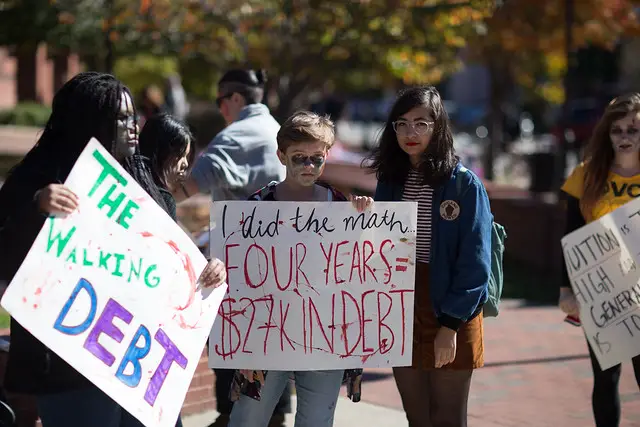As student loan debt becomes one of the main concerns across the country, many Americans think that the government should play a proactive role in addressing the problems of student borrowers.
A new survey commissioned by The Pew Charitable Trusts and conducted by the opinion and market research company SSRS found 58 percent of Americans strongly pitching for government intervention in making student loan repayment easier for student borrowers.
The support for government role in addressing the concern finds overwhelming support among young, of the age to have children in college, low- and middle-income households, and people of color. Even 77 percent of households without student debt also agree with it.
The survey noted that the majority of respondents regardless of age, income, race, political party affiliation agree that student loan borrowers are having a hard time repaying back their loans.
Other reports suggest that default on loans is higher among African-American students. They are 5.2 percent more likely than their white peers to default. Overall an estimated 5.2 million borrowers are in default of their federal student loans. Also, about 20 percent of student loan borrowers were behind on their payments.
About 69 percent of those surveyed share their concern for the overall economy when borrowers struggle to repay debts. They also supported the statement that borrowers should do more to prioritize repayment of their loans.
“These data also indicate that Americans support efforts to find solutions that focus on improving the student loan repayment system to ensure that it provides a path to long-term repayment success for financially stressed borrowers—and that it protects taxpayers’ investment in higher education,” the survey report notes.
In a recent SoFi survey, 30 percent of Americans are planning to vote for the candidate who best plans to eliminate their student loan debt. Another 48 percent consider the student debt as one of the factors that will decide their vote.
How is Student Loan Debt Threatening Students? An Interview With Robin Howarth



